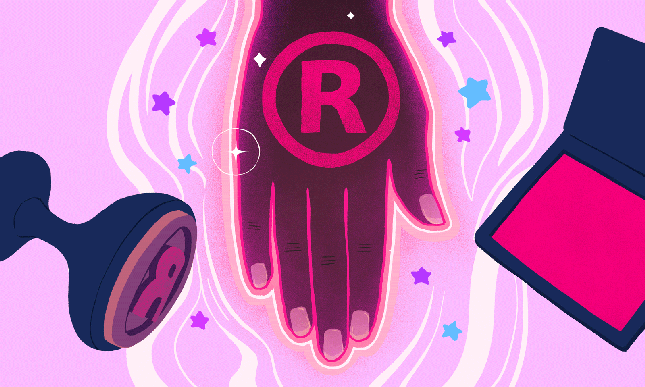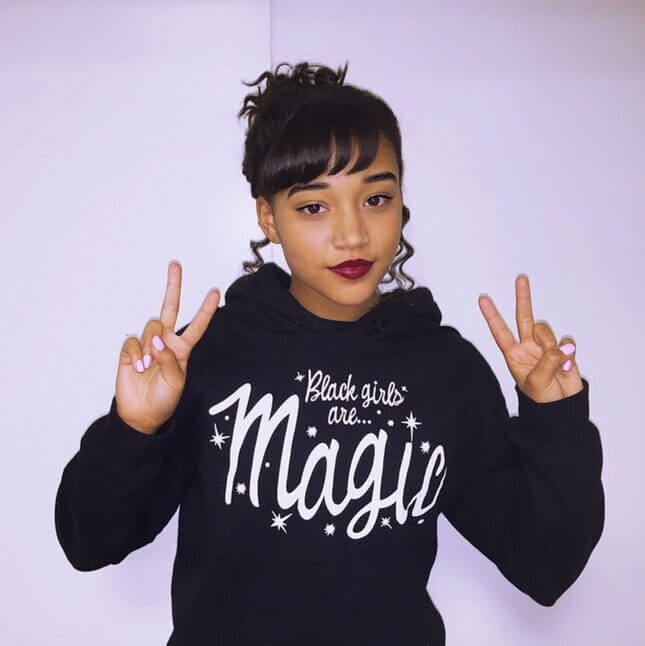Who Gets to Own 'Black Girl Magic'?
Latest

Last year, in honor of Black History Month, Essence Magazine chose a familiar, powerful phrase to brand its February 2016 issue: “Black Girl Magic.” In a corresponding video, the women featured on three separate covers were asked to personally define what the phrase meant. Actress Teyonah Parris described it in terms of confidence, some inexplicable “ethereal” quality. Johnetta “Netta” Elzie, a prominent social activist, called it something that can’t be replicated. Black-ish star Yara Shahidi explained it as a tangible movement and added, “Just look around you, because there’s plenty of Black Girl Magic around you.”
Four months later, at the BET Awards in June, Jesse Williams stood on stage and gave the speech of his life. Besides challenging white people to comprehend the complexity of blackness, he evoked Black Girl Magic, too, urging everyone not to mistake black people as invincible. “Just because we’re magic doesn’t mean we’re not real,” he said.
“Black Girl Magic”—a declaration of pride among black girls and women that began as a viral campaign on Twitter—has played a central role in discussions about black female visibility, how we’re seen and not seen. Over the past two years, the statement has served both as an affirmation and a root of contention. The expression is prevalent enough on social media that it’s come to represent more than just a hashtag. The phrase has spawned lists (Nylon’s “44 Women Weigh In On The Meaning Of “Black Girl Magic,” BET’s “10 Amandla Stenberg Black Girl Magic Moments”), essays (Elle’s mystifying piece “Here’s My Problem With #BlackGirlMagic”), a literary magazine, and plenty of merchandise sold as part of the movement.
When The New York Times wrote about the Essence Black Women in Hollywood event around this year’s Oscars—where an unprecedented number of black women were nominated—“Black Girl Magic” was part of its headline. After interviewing Amandla Stenberg for Teen Vogue’s February 2016 issue, Solange wrote: “I sure as hell felt inspired by our honesty with each other and ready to take on the world—sprinkling black girl magic in every crevice of the universe.”
The point of the statement is for black girls and women to deify ourselves and definitively claim the recognition and specialness we’re often denied. But when it comes to using the expression for business, who gets to claim “Black Girl Magic”?
Last year, online discourse about the phrase quietly entered the legal space, in the form of a trademark dispute between Essence and Beverly Bond, the founder of the organization Black Girls Rock! The dispute—which I found out about through Erika Stallings, a trademark lawyer, via Twitter—is currently in litigation with trial dates set through March 2018. Essence (Full disclosure: I’ve been published in the magazine numerous times) wants to trademark “Essence Black Girl Magic,” and Bond is attempting to trademark “Black Girl Magic” with the United States Patent and Trademark Office, which reviews and issues all patents and trademarks in America.
To the average person, the trademarking process may seem, in a word, boring. On top of that, the legalities of intellectual property are inherently confusing. But in the case of cultural signifiers like “Black Girl Magic,” the simple act of filing for a trademark can trigger compelling debate. Recall that in 2015, for example, Taylor Swift filed to register “This sick beat” (a phrase she used in a song on her album 1989), which fed criticism about her history of appropriation.
What’s happening between Essence and Bond is a standard dispute. What elevates it beyond that is the significant, collective use of “Black Girl Magic” over the past two years. And what complicates it is that a woman who claims to be the originator of the “Black Girl Magic” social media campaign feels excluded from the conversation while others capitalize on the movement.
The concept of “black girl magic” is by no means novel. Writer Joan Morgan’s book of essays, When Chickenheads Come Home to Roost: A Hip-Hop Feminist Breaks It Down, released in 2000, contains these lines: “I wrote. Spent lots of time near the water. Heard Oshun’s laughter twinkling like bells, urging me to recapture the feminine and discover the fierceness of a black girl’s magic.” This uplifting characterization stands in contrast to a familiar, tired archetype in film—the Magical Negro (which includes the supernatural black woman), a character relegated to being the white lead’s sidekick.
-

-

-

-

-

-

-

-

-

-

-

-

-

-

-

-

-

-

-

-

-

-

-

-

-

-

-

-

-

-

-

-

-

-

-

-

-

-

-

-









































